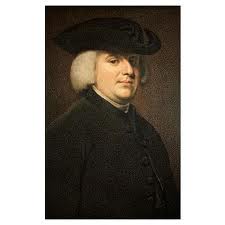I never came away from an autopsy without reflecting on the marvelous design of the human body.
 There are twelve major systems in your anatomy; all interlinked to ensure your survival. Remove any system (except maybe your reproductive one) and you’ll die. And these systems go about their business – day after day – year after year – without your having to consciously think about operating them.
There are twelve major systems in your anatomy; all interlinked to ensure your survival. Remove any system (except maybe your reproductive one) and you’ll die. And these systems go about their business – day after day – year after year – without your having to consciously think about operating them.
All that’s required is a bit of maintenance and, when things go wrong, modern medical science usually knows how to patch you up. Today’s medical practitioners can replace your organs, your limbs, your hair, and your teeth. But what modern science doesn’t know is how all this came to be.
I’m going to do some edited plagiarism from William A. Dembski, of the Access Research Network, who wrote an excellent article on intelligent design. The idea has been around since the ancient Greeks, who did some pretty deep thinking about where they came from and where they were going. Some of it was explained by mythology, some by theology, and some by analogy. But the central question – did something intentionally design us – remains unanswered today.
 Design theory—also called design or the design argument—is the view that nature shows tangible signs of having been designed by a preexisting intelligence. The most famous version of the design argument can be found in the work of theologian William Paley, who in 1802 proposed his “watchmaker” thesis. His reasoning went like this:
Design theory—also called design or the design argument—is the view that nature shows tangible signs of having been designed by a preexisting intelligence. The most famous version of the design argument can be found in the work of theologian William Paley, who in 1802 proposed his “watchmaker” thesis. His reasoning went like this:
“In crossing a heath, suppose I pitched my foot against a stone, and were asked how the stone came to be there; I might possibly answer, that, for anything I knew to the contrary, it had lain there forever. … But suppose I had found a watch upon the ground, and it should be inquired how the watch happened to be in that place; I should hardly think the answer which I had before given would be sufficient.”
 To the contrary, the fine coordination of all the watch parts would force us to conclude that it must have had a maker – that there must have existed, at some time, and at some place or other, an artificer or artificers, who formed it for some purpose. We’d struggle to comprehended its construction and designed its use, just as we’ve struggled with ourselves.
To the contrary, the fine coordination of all the watch parts would force us to conclude that it must have had a maker – that there must have existed, at some time, and at some place or other, an artificer or artificers, who formed it for some purpose. We’d struggle to comprehended its construction and designed its use, just as we’ve struggled with ourselves.
Paley argued that we can draw the same conclusion about many natural objects, such as the eye. Just as a watch’s parts are all perfectly adapted for the purpose of telling time, the parts of an eye are all perfectly adapted for the purpose of seeing. In each case, Paley argued, we discern the marks of an intelligent designer.
Although Paley’s basic notion was sound and influenced thinkers for decades, Paley never provided a rigorous standard for detecting design in nature. Detecting design depended on such vague standards as being able to discern an object’s “purpose.” Moreover, Paley and other “natural theologians” tried to reason from the facts of nature to the existence of a wise and benevolent God.
All of these things made design an easy target for Charles Darwin when he proposed his theory of evolution.
 Whereas Paley saw a finely-balanced world attesting to a kind and just God, Darwin pointed to nature’s imperfections and brutishness. Although Darwin had once been an admirer of Paley, Darwin’s own observations and experiences – especially the cruel, lingering death of his 9-year-old daughter Annie in 1850 – destroyed whatever belief he had in a just and moral universe.
Whereas Paley saw a finely-balanced world attesting to a kind and just God, Darwin pointed to nature’s imperfections and brutishness. Although Darwin had once been an admirer of Paley, Darwin’s own observations and experiences – especially the cruel, lingering death of his 9-year-old daughter Annie in 1850 – destroyed whatever belief he had in a just and moral universe.
Following Darwin’s triumph, design theory was all but banished from biology. Since the 1980s, however, advances in biology have convinced a new generation of scholars that Darwin’s theory was inadequate to account for the sheer complexity of living things. These scholars – chemists, biologists, mathematicians, and philosophers of science – began to reconsider design theory. They formulated a new view of design that avoids the pitfalls of previous versions.
Called intelligent design (ID), to distinguish it from earlier versions of design theory (as well as from the naturalistic use of the term design), this new approach is more modest than its predecessors. Rather than trying to infer God’s existence or character from the natural world, it simply claims “that intelligent causes are necessary to explain the complex, information-rich structures of biology and that these causes are empirically detectable.”


It is said that the chance of life being created ‘by accident’ is the equivalent of a hurricane rummaging through a scrap yard and creating a jumbo jet.
This is a great saying. I just Tweeted it out. Thanks 🙂
Hi Garry,
An interesting and provocative post. At the risk of turning this into a theological discussion, I personally believe, we are Intelligently Designed. All elements in our world, whether you call it ID, The Golden Ratio, The Fibonacci sequence, etc; when examined show a mathematical symmetry, a pattern which is found in everything; I don’t see how this could be random. In fact, when I studied biology I witnessed the gross aberrations which resulted from nature’s “randomness”.
Does everything have to have a complex purpose to it? IMHO I believe simple beauty for the sake of beauty is enough of a purpose, and humans are capable of incredible beauty. Again, how can this be the randomness of nature?
*stepping off my soapbox now ;>
Hi Sandy & thanks for your thoughtful comments – as always 🙂
You made me do a little ‘root cause’ thinking, so I had a look at the definition of ‘intelligence’. One of the main criteria is the ability to communicate information. The existence of all life is the result of communicating information on how it’s to be built. The DNA molecule is nothing but one mass of instructions on how the life form is designed and how it’s to pass this information onto its next generation. Each offspring is given a bit of tweak, or evolves, to coincide or improve among other life forms. So using basic logic, all life results from the intelligent act of communicating design information; therefore we are intelligently designed with an evolutionary option.
I’m with you on the math equations. Einstein said ‘If God is nothing else, (s)he’s a master mathematician’. Now that’s a beautiful thought 🙂